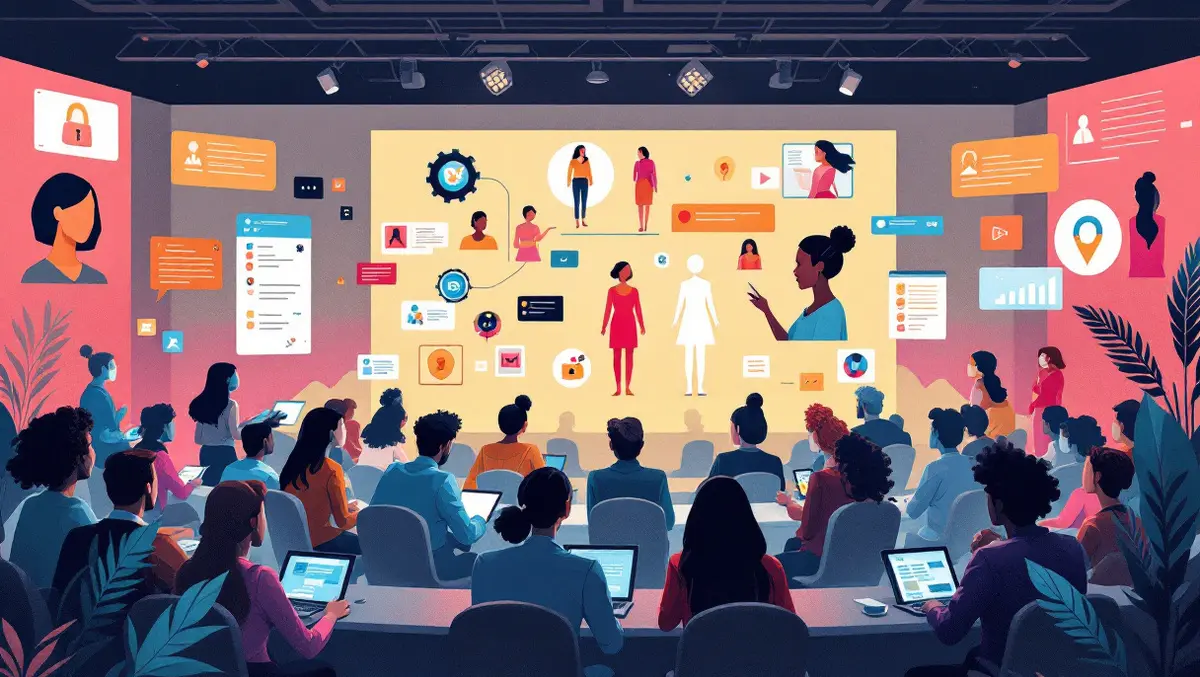
SHE Symposium tackles AI gender norms & online harms
The 2025 SHE Annual Symposium commenced in Singapore, focusing on the intersection of artificial intelligence (AI) and gender norms and its effects on women's safety and dignity online and offline.
Organised by SG Her Empowerment (SHE), a non-profit organisation advocating for women and girls, the symposium aims to bring together various stakeholders, including policymakers, industry experts, and advocacy groups, to initiate meaningful discussions and actions.
At the event, SHE introduced its Quick Guide to Online Harms, a resource providing practical advice for victims, key statistics, and case studies from SHECARES@SCWO, Singapore's first support centre dedicated to online harm victims.
"The dark side of online spaces and AI must be addressed," stated Ms Stefanie Yuen Thio, Chairperson of SHE. "Their misuse amplifies misogyny and disproportionately harms women and girls. The SHE Annual Symposium is a call to action—for more dialogue, collaboration, education, and stronger support for victims."
Guest-of-Honour Madam Rahayu Mahzam, Minister of State for the Ministry of Digital Development and Information and Ministry of Health, highlighted the urgency of combatting online harms that predominantly affect women and girls, stating the importance of enhancing legal frameworks to regulate digital spaces and protect victims.
"Digital technologies bring benefits to society and the economy, but they have also presented risks, including to the safety and well-being of many, especially women and girls. To foster a safer and more responsible online space, the Government has been working to enhance the relevant legal frameworks to better regulate the online space, protect victims from online harms and enhance accountability of those responsible for online harms," said Madam Rahayu. "A collective understanding and support from all stakeholders in the online ecosystem, including the Government, industry, and community partners, is also vital to drive meaningful change. Community partners such as SHE play an invaluable role in materialising our shared vision of a safer digital world."
Ms Sun Xueling, Minister of State for the Ministry of Home Affairs and Ministry of Social and Family Development, emphasised the need to address societal norms and beliefs that influence how women are treated and valued, both online and offline.
"Building a safer and more inclusive environment for our women and girls goes beyond having stronger legal protections. We must also tackle underlying societal norms and beliefs in the online and offline space. These deeply embedded norms influence how women are treated in society and how their contributions are valued – or devalued – in everyday life. Left unchallenged, they perpetuate harmful behaviours that limit women's freedom, agency, and ability to thrive. This impacts their daily lives, their sense of security, their ability to participate fully in the workforce and also affects their families," stated Ms Sun.
The Quick Guide to Online Harms is intended as a reference tool for those affected by online harms, detailing practical advice and support options. It addresses the growing challenges posed by cyberbullying, harassment, and other forms of online abuse, which disproportionately impact girls and women.
The guide includes useful information such as helplines, counselling, and pro bono legal assistance, insights into the impact of online harm, and strategies for creating a safer, more inclusive environment.
Key statistics from the SHECARES@SCWO Centre indicate that nine out of ten victims of online harm are female, with half of the victims being 35 years old or younger. Additionally, one-third of the individuals affected experienced both online and offline harms simultaneously.
Ms Yuen Thio remarked, "As technology advances faster than regulation, more people are at risk. From AI deepfakes to cyberbullying, online harms are becoming alarmingly normalised. We must reject this culture of harm and misogyny. SHE remains committed to raising awareness, empowering survivors, and equipping communities with the tools to fight back."
The symposium's discussions focus on topics like misogyny in digital spaces and the need for women to lead AI development. It explores the need for better education, civil discourse, and the proactive involvement of women in shaping AI's impact.
A panel titled "Tackling the Multiverse of Misogyny" featured discussions on strategies to combat online harms, while another panel, "Shaping Intelligence: Why Women Must Lead in AI," emphasised the importance of women's contributions to AI development and ethics.
The event also included workshops on digital safety, privacy, and supporting targets of online harms, alongside exhibitions by various organisations.
The 2025 SHE Annual Symposium aims to influence future AI governance, online safety, and gender equity debates in Singapore, with discussions expected to lead to tangible changes in addressing gender-based digital challenges.


